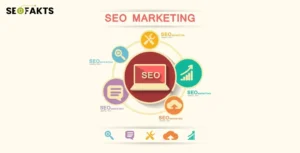In today’s digital landscape, a Content Management System (CMS) is essential for anyone looking to create, manage, modify digital content and optimize web content efficiently. With numerous options available, choosing the right CMS can feel overwhelming. This guide will walk you through the key factors to consider, helping you make an informed decision that suits your unique needs.
Related blog The Ultimate Guide to Color Theory for Graphic Designers
1. Define Your Goals
Before diving into the specifics of various CMS platforms, it’s crucial to define what you want to achieve. Are you building a personal blog, an e-commerce site, or a corporate website? Understanding your goals will help narrow down your choices.
Considerations:
When selecting a CMS, it’s important to clearly define the purpose of your website—whether it’s for sharing information, selling products, or showcasing a portfolio. Additionally, Content Management System consider the types of content you plan to publish, such as blogs, images, or videos, as this will influence which features you’ll need in a CMS.
- Purpose: Informational, e-commerce, portfolio, etc.
- Audience: Who are you targeting?
- Content Types: Blogs, videos, images, or products?
2. User-Friendliness
A user-friendly CMS will save you time and frustration. Look for an intuitive interface that allows you to easily create and edit content without extensive technical knowledge.
Tips:
Look for a CMS that offers drag-and-drop features and WYSIWYG editors to simplify content creation and enhance your user experience.
- Drag-and-Drop Features: Makes content creation easier.
- WYSIWYG Editors: “What You See Is What You Get” editors help visualize your layout.
Related blog The Art of Storytelling in Content Writing – Tips and Techniques
3. Flexibility and Scalability
As your website grows, your CMS should be able to adapt. Choose a system that offers flexibility in design and can handle increased traffic and content volume.
Questions to Ask:
Can the CMS accommodate future growth in terms of traffic and content volume? Additionally, how customizable is the platform in terms of design and functionality to suit your evolving needs?
- Customization: Can you add themes or plugins?
- Scalability: Will it handle a growing user base or additional content types?
4. SEO Capabilities
A good CMS will include built-in SEO features or allow for easy integration with SEO tools. This is vital for improving your website’s visibility on search engines.
Key Features:
Ensure the CMS allows for customizable SEO-friendly URLs and easy management of meta tags to optimize your content for search engines. Additionally, look for built-in tools for generating sitemaps and integrating analytics to track your website’s performance.
- SEO-friendly URLs: Can you customize permalinks?
- Meta Tags Management: Are you able to easily edit title tags and meta descriptions?
Related blog How a Responsive Website Can Boost Your Business in a Mobile-First World
5. Security Features
Website security is non-negotiable. Look for a CMS that prioritizes security with regular updates, secure user roles, and built-in protection against common threats.
Security Essentials:
Choose a CMS that offers regular updates to protect against vulnerabilities and provides robust user permission settings to control access levels for team members. Additionally, look for built-in backup solutions or easy integration with backup services to safeguard your data.
- Regular Updates: Ensures you’re protected against vulnerabilities.
- User Permissions: Control access levels for different team members.
6. Support and Community
Robust customer support and an active user community can be invaluable when you run into issues or need advice.
Considerations:
Identify your website’s purpose and target audience to ensure the CMS you choose effectively meets your specific needs.
- Documentation: Is there comprehensive help available?
- Forums and Community Support: Are there active discussions or groups for troubleshooting?
Related blog Top 10 SEO Strategies to Boost Your Website’s Ranking
7. Cost
CMS options can vary significantly in cost, from free open-source solutions to premium platforms with subscription fees. Understand your budget and what features you need.
Breakdown:
Evaluate the initial costs, including setup fees and premium themes, to ensure they fit within your budget. Additionally, consider ongoing expenses such as hosting, maintenance, and potential add-ons that may arise as your site grows.
- Initial Costs: Setup fees, premium themes, and plugins.
- Ongoing Costs: Hosting, maintenance, and potential add-ons.
8. Integrations
Consider what other tools you need to use, such as email marketing platforms, analytics tools, or CRM systems. A CMS that easily integrates with other services can streamline your workflow.
Integration Examples:
Check for compatibility with popular email marketing platforms like Mailchimp or Constant Contact to streamline your communications. Additionally, ensure the CMS can easily integrate with analytics tools such as Google Analytics for tracking user behavior and website performance.
- Email Marketing: Tools like Mailchimp or Constant Contact.
- Analytics: Google Analytics for tracking user behavior.
Related blog Top Social Media Trends to Watch in 2024
Conclusion
Choosing the right CMS is a critical step in establishing your online presence. By considering your goals, ease of use, flexibility, SEO features, security, support, costs, and integrations, you can select a system that not only meets your current needs but also grows with you. Content Management System Take the time to explore different options, read reviews, and even test out demos to find the perfect fit for your project. Your ideal CMS is out there—let this guide help you uncover it!





